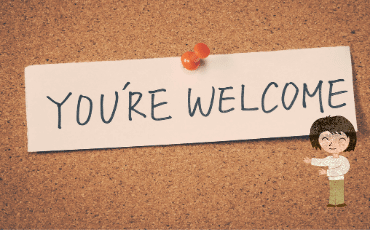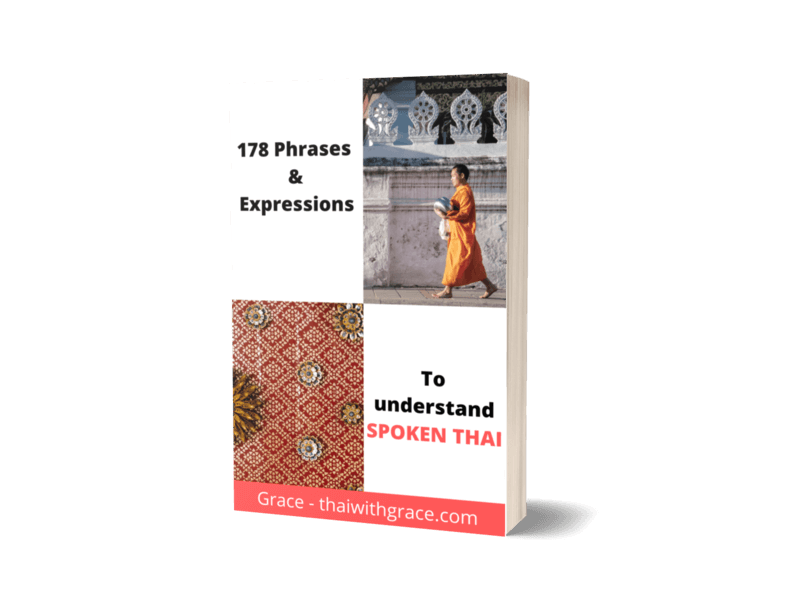Having manners is very important in Thailand (and everywhere in the world 😉). Being able to say thanks or thank you in Thai language will be very useful as you will probably say thanks multiple times a day.
In this article, I will explain the most common ways to say thank you in Thai as well as how to say you’re welcome.
Quick answer:
ขอบคุณครับ (kòp kun kráp) – if you are a guy.
ขอบคุณค่ะ (kòp kun kâ) – if you are a woman.

You can watch the video version below and download the video’s transcript here.
How to say Thank you in Thai
The easiest way to say thank you in Thai is by saying ขอบคุณ (kòp kun).
kòp kun means thank you. HOWEVER, if you are a guy you add ครับ (kráp) at the end and if you are a girl you add ค่ะ (kâ) at the end.
Meaning – guys say Thank you by saying ขอบคุณครับ (kòp kun kráp).
Girls say Thank you by saying ขอบคุณค่ะ (kòp kun kâ).
💡 kráp and kâ are particles that Thais use at the end of sentences to sound polite. You can read more about it in my “Krap and Ka” article.
Example sentences:
- Thank you very much!
ขอบคุณมาก (Literally: thanks, a lot)
kòp kun mâak - Thank you for the help
ขอบคุณสำหรับความช่วยเหลือ
kòp kun săm-ràp kwaam chûay lĕua - I thanked him yesterday
ฉันขอบคุณเขาเมื่อวานนี้
chăn kòp kun kăo mêua waan née
Other ways to say Thanks in Thai
ขอบใจ (kòp jai).
Another way to say thanks in Thai is ขอบใจ (kòp jai). ขอบใจ is a more “friendly” way of saying thanks.
You can use kòp jai with friends, younger people, children, informal situations.
❗️ Don’t forget to add ครับ (kráp) and ค่ะ (kâ) at the end if you are a guy or a girl respectively!
แต้งกิ้ว (dtâeng gîw)
Another way to say thank you is แต้งกิ้ว (dtâeng gîw). Literally “thank you” in English pronounced with a Thai accent. You can use this one in everyday situations.
How to say you’re welcome in Thai
You are most likely wondering how people will respond to you after you thank them? Or how you will respond after being thanked?
The most likely response you will hear is ไม่เป็นไร (mâi bpen rai). mâi bpen rai doesn’t mean “You’re welcome” it means more like “not a problem” or “it’s okay”.
You might see ยินดีต้อนรับ (yin dee dtôn ráp) being recommended as a way to say you’re welcome in Thai. But actually, it’s to welcome someone somewhere (like you’re welcome into our restaurant or our house).

Other things to note
When people give thanks in Thai or say you’re welcome, it can also come accompanied by a Wai. To learn more about the Thai Wai and other situations where it is used please see our article.
I hope you now know everything you need to know about saying thank you in Thai and how to respond.
By the way, if you want to do Interactive exercises in Thai, check out ling-app.

